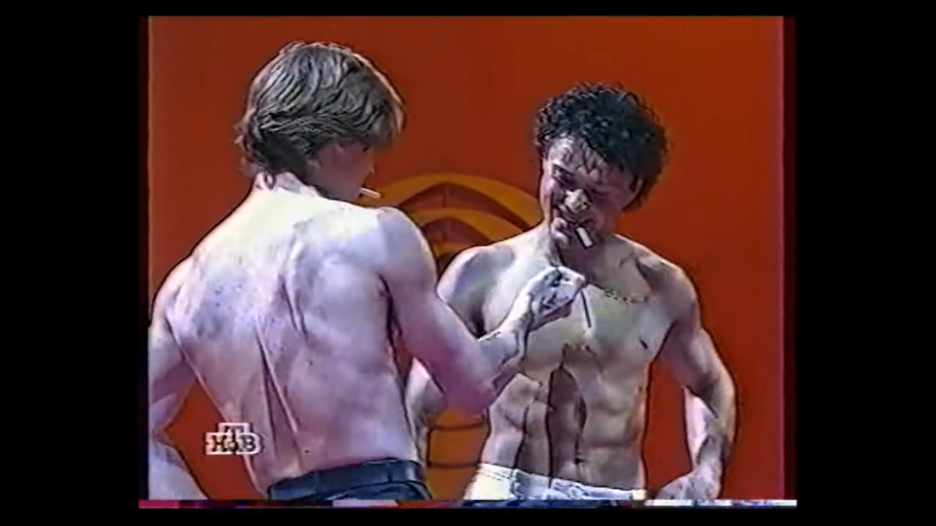Filed Under: Video > Entertainment > Yelena Khanga explores homophobia on “Pro Eto (About That),” 1998
Yelena Khanga explores homophobia on “Pro Eto (About That),” 1998

Yelena Khanga’s Pro Eto (About That, 1997-2000) was the first post-Soviet television show focused on the subject of sexuality. Premiering in 1997, it explored its subject from a variety of perspectives, mostly well-intentioned, in a way clearly modeled on Western talk shows where provocative speakers engaged with an active studio audience on controversial topics. Khanga’s project was quite progressive for its cultural milieu, opening up the public discourse around sex considerably. The public met this new openness with enthusiasm: in a 2007 Kommersant interview, Angela Boksis, a producer on the show, recalls the audience learning the word “cunnilingus” in the episode “Oral Sex” and shouting it incorrectly as “cunnysusus” in excitement.
Yet despite its many virtues, Pro Eto could also be problematic, with episodes like “Homophobia” (1998) displaying peculiar choices at odds with the host's laudable intentions. For the first fifteen minutes of the episode, the audience is treated to a virulently homophobic rant by two figures who are never introduced. One is the unsuccessful far-right musician Taras Chuchman of the band Russian Truth, while the other plays the part of Chuchman’s silent heterosexual companion. This rant is followed by a prolonged and inexplicable dance called a “tango” (for no discernable reason), with cigarette-smoking and sexual overtones, performed by two men from Club Chance (Shans), a popular gay night club in Moscow. Khanga states that these men are not themselves queer, but want to give the studio audience the broad strokes about what a queer aesthetics “might look like.”
Only in the episode’s last ten minutes does an actual queer person, identified only as “Vladimir,” appear, in order to come out on national television and answer questions. The episode’s rhetorically absurd conclusion, in which Khanga suggests that having a homosexual person listen to a homophobe insult them is a step toward mutual understanding, clashes with her unprecedented effort to offer sympathetic queer representation on Russian TV. “Homophobia” thus exemplifies attempts to open Russian culture up to new ways of living and empathizing in the 1990s—while also showcasing the flaws and mistakes inherent in even the best-intentioned gestures within the era’s highly eclectic media landscape.